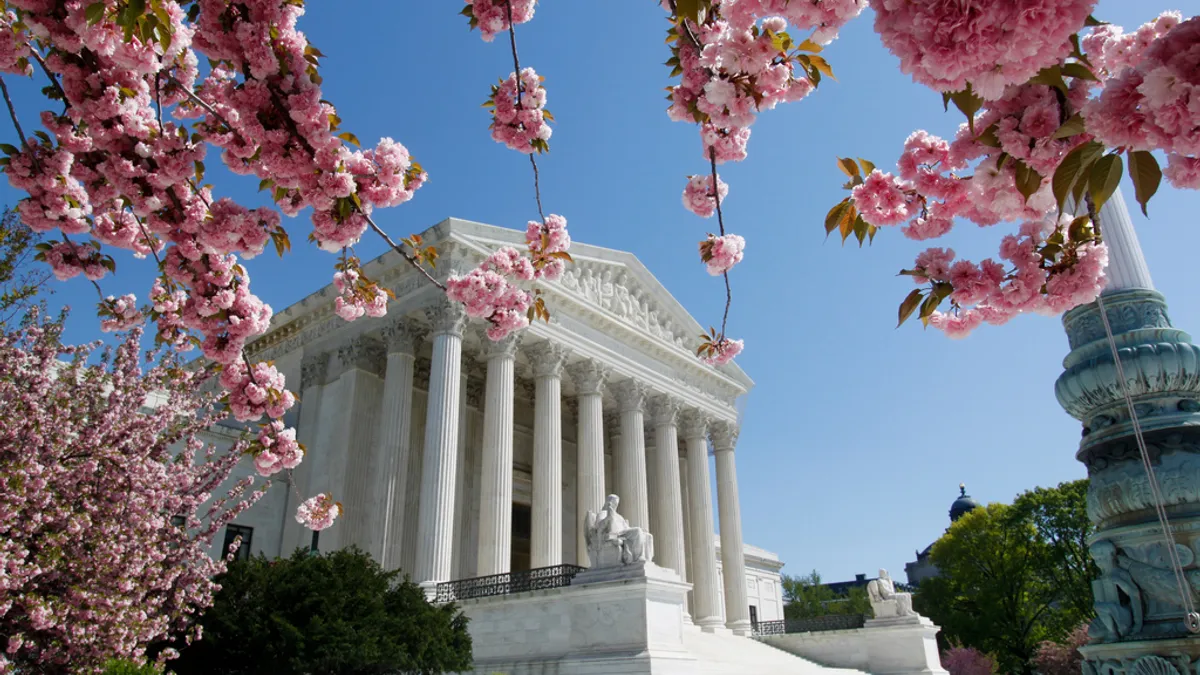Dive Brief:
- The Supreme Court split 4-4 Tuesday over whether public unions could levy fees from non-union workers, thus affirming a lower court decision that ruled in favor of the unions.
- The original lawsuit was brought by non-union public school teachers in California who objected to paying fees to the California Teachers Association union.
- After the death of Justice Antonin Scalia earlier this year, the court has been evenly divided between four conservative-leaning justices and four liberal-leaning justices.
Dive Insight:
Conservative justices, who had a 5-4 majority on the court, looked ready to rule that such mandatory fees were in violation of the First Amendment. But Scalia's death upset the balance.
Public-sector unions were concerned that a ruling in favor of the teachers would have weakened the unions' bargaining power, as those who work in a union workplace but opt out of union membership still benefit from the union's existence. In California, public employees who opt out of unions must pay a "fair share service fee" or an "agency fee" that is usually equivalent to union dues. Twenty other states have such laws, The New York Times reports.
The 9th Circuit Court of Appeals, in its original ruling, used a 1977 Supreme Court precedent that upheld laws requiring public employees who opted out of a union to pay mandatory fees because workers supposedly benefited from the union to some degree.













